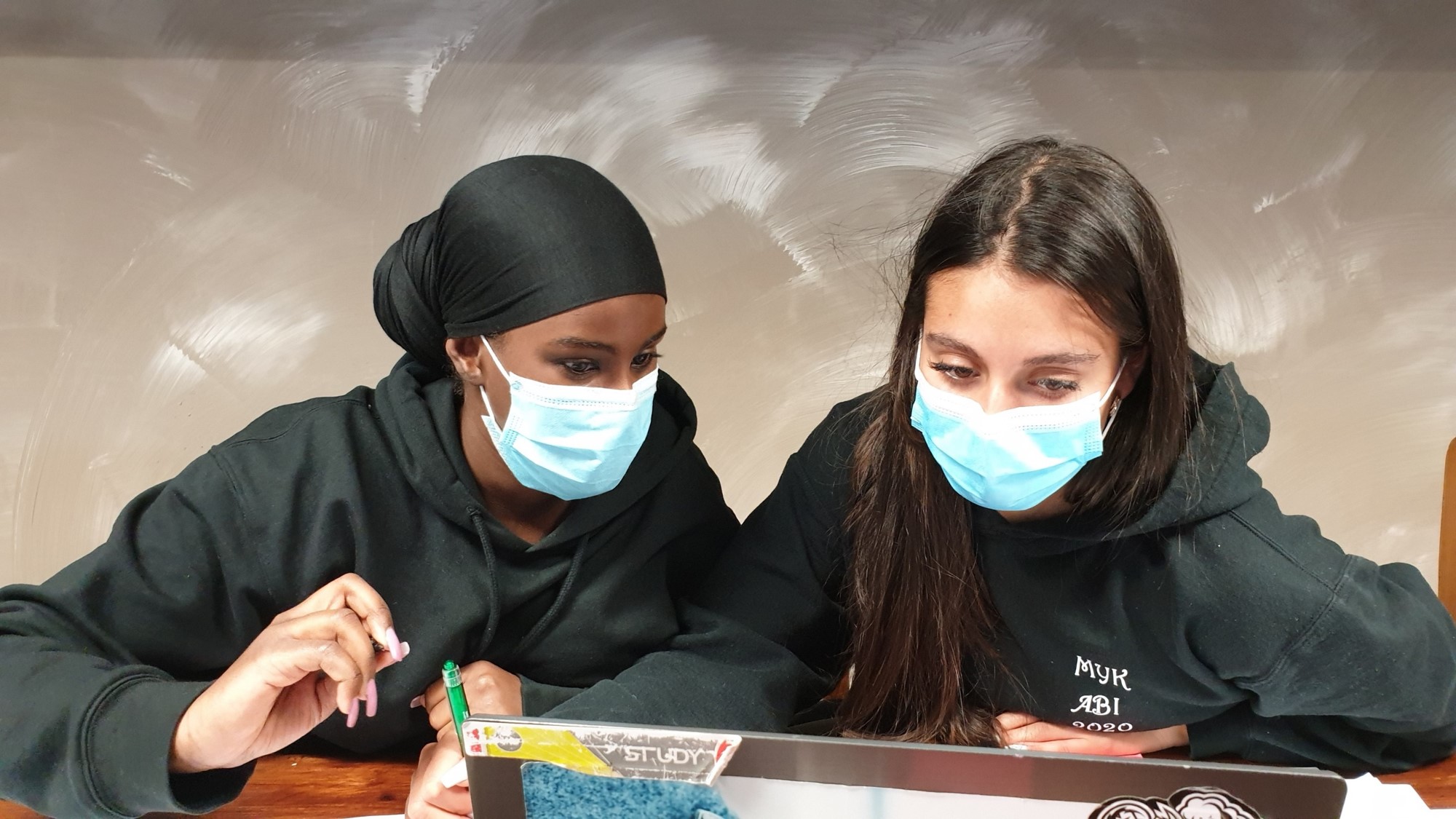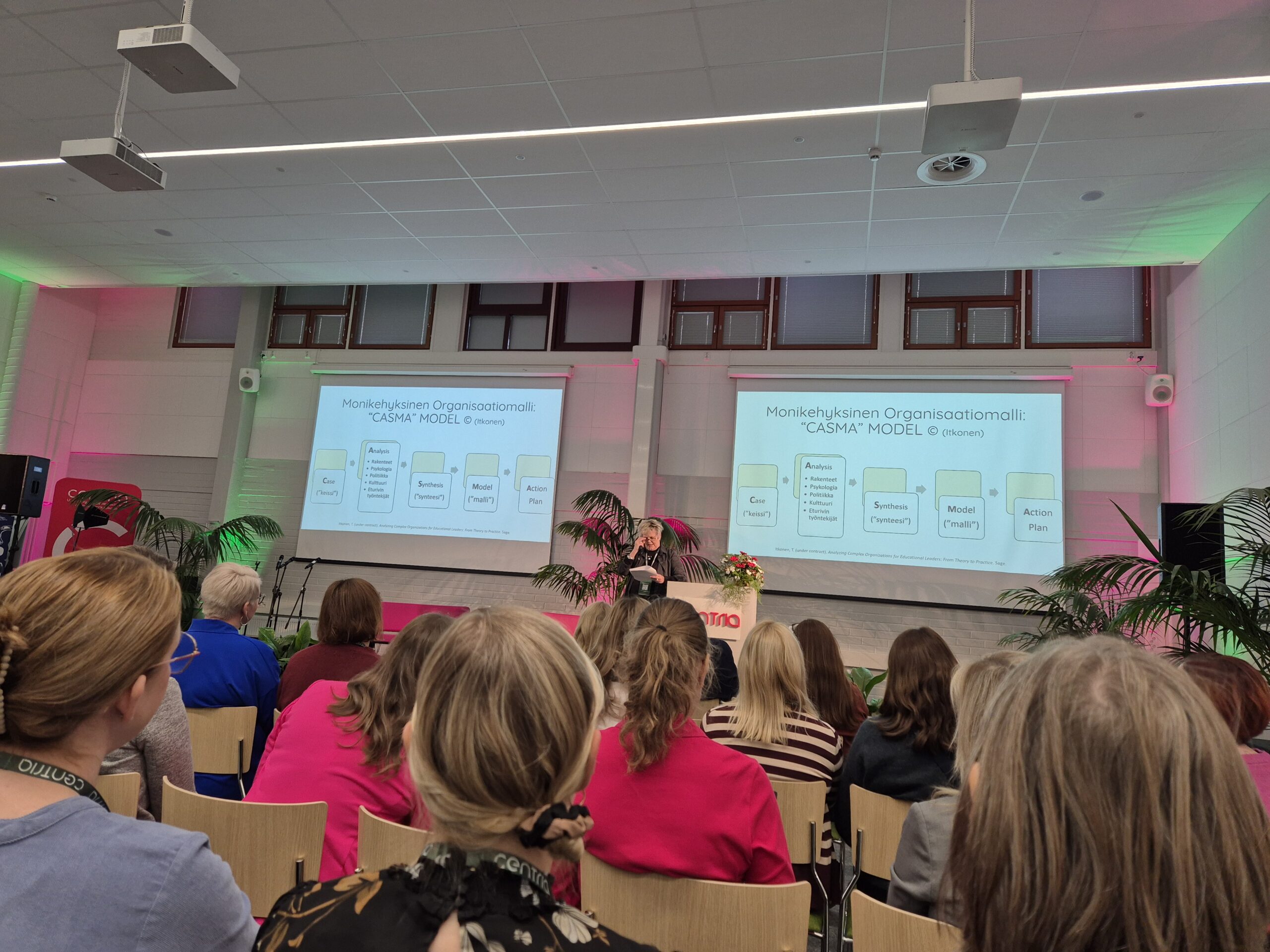Study report on Intercultural Competence and Diversity Management
Intercultural Competence and Diversity Management in a study report of Diversity Management at working place with focus on ethnicity from the perspective of employers at SMEs and NGOs
The concept of intercultural competence means respecting people from all cultural backgrounds and building and nurturing a non-discriminatory atmosphere in companies and in society. It also means organizing, accessing and reaching services in a way that takes into account the partly different needs of people from different backgrounds
Our research made diversity visible as part of Finnish working life. The research connects the importance of diversity management, and attitudes, ideas and practices in SME’s and NGO’s.

The informants of this study highlighted the finding that multicultural teams work more efficiently and better if managed proper way and McKinsey’s (2018) research supports this research result. According to a study by McKinsey (2018), diverse teams work more efficiently than monogenic teams. Diversity increases a company’s chances of success through harnessing its broad knowledge potential and expands the learning of organizations and companies. Finnish working life needs top experts and work-related immigration in the future. Understanding diverse leadership as well as anonymous recruitment, is clearly seen as a way to better reach potential professionals from all cultural backgrounds.
Reducing prejudices in Finland with regard to the recruitment is slow, but it is still happening. Attitudes for diversity are getting more positive. There are also structural racism, fear of difference and hidden attitudes that we need to notice and change in positive and understanding way.
The future operations of companies and organizations in Finland are based on the management and development of diverse management, which enables global people to be employed. The path to success comes through diversity management, by hiring diverse team members and building networks between companies and people. Organizations and small and medium sized companies, need training for a cultural competence relevant to the diverse recruiting. Welfare of Finnish society is built on the diversity solution.

Helsinki Business College Ltd. has 31 % students of international talents with different cultural background. Photo: Helena Miettinen
The cultural competence of professionals consist the knowledge and skills of cultural awareness, which encounters motivation to learn more supported by the organisational culture, in where one’s own cultural habits and values are respected and mirrored in the habits and values of other cultures. Cultural sensitivity refers to a professional’s culturally respectful interaction skills and appreciative verbal and nonverbal encounter and communication between the professional and the client, so that each person has the right to express and be accepted with their own culture.
The culture-sensitive work approach helps us to act as a member of a multicultural team and work community. Cultural sensitivity is the desire, ability, and sensitivity to understand people from different backgrounds. Culture-sensitive services do not mean separate services for all target groups, but services that are able to adapt to the needs of different customers. In addition to cultural background, each of us is an individual with our own personal needs. This is also important to remember when meeting a client from a different culture.
The customer must be seen as an individual instead of stereotypes.
- Respect difference
- Reflect on the impact and significance of your own cultural background on yourself and your attitudes
- Be open and patient
- Be interested in different cultures
- Ask the customer about his or her own customs, values, and culture, rather than assumptions and generalizations
- Encouraged to meet the customer as an individual rather than as a representative of a particular culture
In addition to the professional’s approach to work, cultural sensitivity is a way of organizing services. Targeted communication and individual service guidance support both the availability and effectiveness of services. (Department of Health and Welfare 2021).
According to our study, intercultural competence training is necessary helping recruitment processes and helping people to understand each others better while working together.
In Finland we are ready to train the company’s recruiters and managers for better cultural competence and diversity management. DIME project is inspired by the willingness to promote ethnic inclusion in host countries (Bulgaria, Finland, Italy and Sweden)’ workplaces. The general aim of the project is to support social and economic integration of migrants and ethnic minorities via awareness-raising and training of employers at SMEs and NGOs. In our opinion the best way to promote diversity management is to share best practices, tell success stories and facilitate dialogs.
In the future, it will be important to create understanding between different cultures and increase knowledge and understanding of diversity management in the Finnish labor market. Our aim is to bring equal opportunities for all: for work, for leisure, for life.
Education and educational institutes has a major role in teaching new ways of thinking, reducing racism, prejudices and changing the unequal practices in working life. There is a need for cultural competence and diversity management training. So, do you wait until you grow to have a strategy for diversity, or do you just create a strategy for the diversity now? That´s the question what we all need to figure out.
More information about this research from researchers Helena Miettinen and Taru Toivonen.
For more information, contact:
helena.miettinen@bc.fi
taru.toivonen@bc.fi
The Research was made part of the European Union funded DIME-project, which is inspired by the willingness to promote ethnic inclusion in host countries’ workplaces. The general aim of the project is to support social and economic integration of migrants and ethnic minorities via awareness raising and training of employers at SMEs and NGOs.

